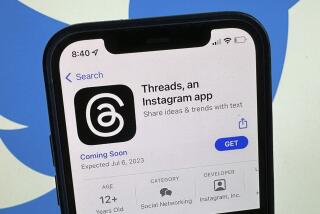Facebook to clone Flipboard next, report says
Facebook, which has never shied away from copying its rivals’ features, is now working on a mobile service that would display news content in a visually appealing, magazine style, similar to what startup Flipboard already does.
The Wall Street Journal is reporting that Facebook is developing what it calls “Reader” for smartphones and tablets. Reader would give users another way to see the news their friends are posting and it would give Facebook another avenue to display ads.
The report says that Reader, which Facebook has been working on for more than a year, according to unnamed sources, would resemble Flipboard, a service with more than 50 million users. Flipboard is an app released three years ago that creates magazines for tablet and smartphone users based on the content their friends share on Twitter and Facebook.
PHOTOS: The 10 biggest tech gadget fails
Facebook did not confirm the existence of Reader to the Journal, and the report does not say when, or if, the service will be released. But cloning popular features or apps created by others is a strategy Facebook has been practicing quite a bit lately.
Most recently, the company added video to its mobile photo sharing social network Instagram in a move to replicate Vine, a popular video app released this year by Twitter.
Facebook has made other recent changes to itself that make it more closely resemble Twitter. The company now uses hashtags, verifies the accounts of famous users and allows users to have “followers” -- three features adopted by Twitter years ago.
But not all of Facebook’s cloning efforts have worked. Poke, for example, was an app released late last year that let users send each other pictures that would disappear after being viewed for a few seconds. That app was similar to Snapchat, an up-and-coming Los Angeles social network, but Poke has not been adopted by many users.
ALSO:
Indecisive? Get quick poll results with these 5 feedback apps
First trailer for Steve Jobs movie with Ashton Kutcher released
Facebook glitch exposed data of 6 million users to other members






